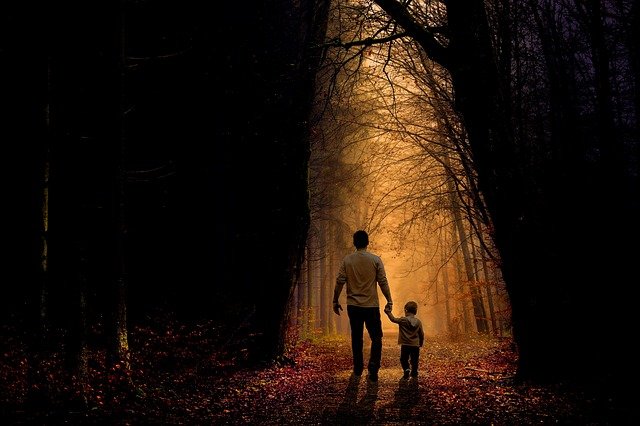There are of course numerous ways to look at parenting. Some choose to focus on the aspect of an unconditional “love” that never corrects a child. Others believe that doing things for the child will express love in the best possible way. And there are of course parents who see the task of raising children as a competition and their children’s life as a goal that must be achieved. Some parents seem to aim to combine all of these into a soup of mixed messages and unguided destinations. Our blogs make pretty clear how we view each of these philosophies – as the best of intentions with the worst of outcomes. For us, it is deliberate parenting that is done in a way that accomplishes something critical that is always best. That critical something is producing an adult human being who is competent, loving, humble, and joyful while simultaneously being able to live as a good neighbor and citizen.
Deliberate parenting may require some reorientation. The tenets at a high level are simple enough and leave plenty of room to develop your own style as well as express yourself as an independent human being.
– We come to thrive by supporting a little person who is trying to become something that they themselves define.
– We share what we know with our children and help them understand that we are free to grow and change our minds.
– We celebrate with our children when they work hard to accomplish something that formerly baffled them.
– We help our children understand that everyone else, just like us, is working their way through life, stumbling on some occasions and succeeding on others.
– We live our lives in a way that reflects values that ultimately arm our children to be the types of friends, parents, partners, neighbors, and citizens that the world needs.
– We help our children find joy and value it for what it is.
When we care about someone deeply we support them in their endeavors. Support isn’t just allowing children free reign. As with others we love, we support our children by helping them to recognize good and bad opportunities as well as understanding how their own weaknesses and strengths contribute to the likelihood of success at a task. If your child lacks the tenacity to complete tasks that bore them, it is likely they will never sit atop the mountain in any endeavor. Encouraging them to develop the skills to finish what they start is ultimately better support than just telling them they can do whatever they dream of.
An entrenched mindset is the death of personal growth and progress. When we teach a child there is one way to do something, one way to feel about something, or one way to become something we ultimately close doors for them (and ourselves). Saying to a child who doesn’t see the world as you do “Just wait until you are a grown up, you will see things differently/my way/in a smarter way” is a recipe for rebellion – the death of growth. From the youngest ages it is far better to help your children celebrate the fact that how they see things today can and will change as they grow and experience more things in the world. And guess what – the same is true for you.
With all apologies to those who embrace the “everyone gets a trophy” mindset, we disagree vehemently on this one. Rewarding the ability to accomplish the most basic task – participation – is a recipe for mediocrity and arrogance. At Greystone House, we get the joy of watching every day as children master tasks they could not master the day before and doing so by their own effort. THAT is worthy of reward for any person and that is when we should be there to celebrate with our children. But guess what? Our celebrations can’t top the feelings that come with earning something ourselves. They can only reinforce them.
Holding ourselves up as the model of perfection to our children is an exercise in arrogance. Like everyone else in the world, we make mistakes, we bump into barriers, and we stubbornly refuse to learn. It is our humility in the face of failure and celebration of the lessons it teaches us that assists our children in developing the same mindset. Anyone who has attended more than one of our coffee klatches or read through our blogs knows we are big fans of failure. It isn’t just to help us grow personally, it is a reminder that we are part of a community of imperfect people, all of whom need help in one form or another to make it through.
How we live is far more important than how we say to live. We have a key set of values at Greystone House that we focus on as part of our early childhood education programs. Montessori itself is a value driven education method (that is aligned to much of what you are reading on this page). Rather than beat a dead horse, take a look at the values we celebrate as educators and as individuals.
There is no greater emotion than joy. It is also the least understood emotion in our opinion. Call us stoics (go ahead, some of us are actually lifelong stoics), but using our own developed abilities in the service of others – particularly children – while accepting the fact that life will unfold around us and potentially effect us in ways we cannot control and may not desire is the foundation for a deep sense of joy and satisfaction. We can take whatever comes our way and live each day happily. This is so much better than the rollercoaster of ups and downs that makes up the lives of so many.
Know that we are here every step of the way to support you as parents. The world’s most rewarding job doesn’t need to be done alone.





